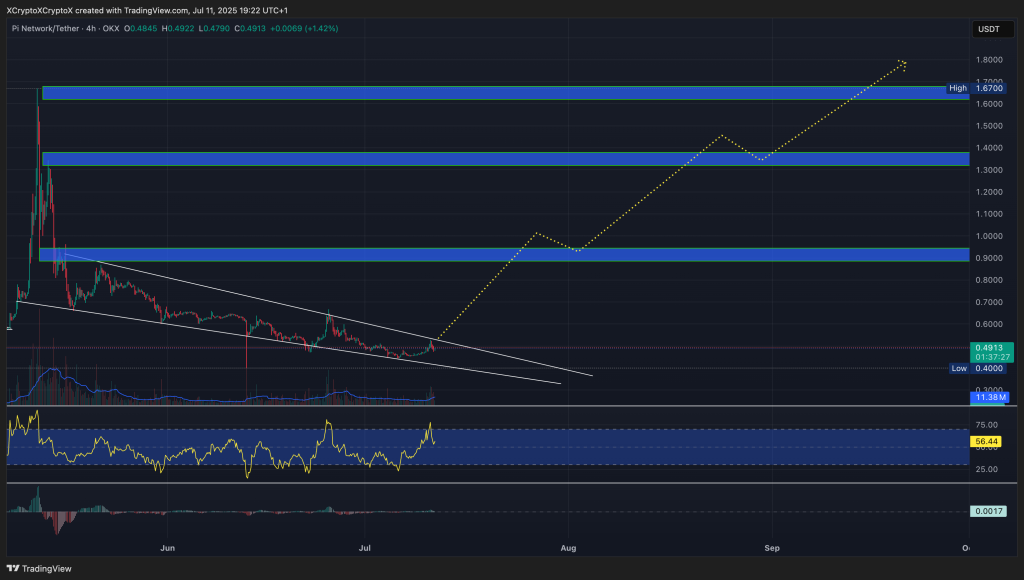One of Guatemala’s best known journalists is facing up to 40 years in prison on Wednesday in a case that has raised alarm about a squeeze on democracy in Central America’s largest economy.
José Rubén Zamora said he believed the charges of money laundering, blackmail and influence peddling against him were filed in retaliation for stories published by his newspaper that alleged corruption by the government of President Alejandro Giammattei.
Days before his final hearing, Zamora told the Financial Times: “What [the president] has done to me is horrible . . . [But] I’m glad that he put me here for doing my job properly.” Giammattei’s office denied any role in Zamora’s case.
Businessman and journalist Zamora, who is being held in the isolation wing of a prison on the outskirts of Guatemala City, won international acclaim for his work exposing corruption since the country’s civil war.
Zamora has been the target of attacks, raids and threats for decades. But in May he said political and economic pressure had made it impossible to continue and he shut down El Periódico, the newspaper he started as the country signed peace accords to end its 36-year civil war in 1996.
The detention and potential conviction of one of the country’s highest-profile journalists has sparked fear among Guatemala’s reporters, with more than 20 fleeing the country in a little over a year, according to the journalism collective #NoNosCallaran (“They will not silence us”).
Zamora’s case comes as members of the media across the region face increasing physical and legal threats, pushing major outlets such as El Salvador’s El Faro and Nicaragua’s La Prensa to relocate abroad.
The verdict in Zamora’s case could come under two weeks before presidential and congressional elections.
“Everyone is terrified,” Zamora said of the country’s press corps. He spoke from the prison on a military base surrounded by lush green forest where he is kept separate from other inmates. Zamora has just one hour a day outside his cell on a small patio.
Giammattei has insisted there is a free press in Guatemala and has underscored its importance for building a democracy. A spokesperson for him rejected any suggestion he was involved in Zamora’s case, stressing the executive branch is separate from the judiciary.
“Guatemala respects and works to guarantee the free exercise of journalism,” the spokesperson said. “We’ve counted more than 6,000 critical stories about the government of Guatemala and there has been no censorship, therefore publishing baseless assertions is an irresponsible decision.”
Giammattei and other political leaders have stressed that the case against Zamora is about how he handled the newspapers’ finances, not its stories. “Does press freedom mean immunity for his acts that aren’t acts done as a journalist but as a businessman?” Giammattei told Colombian radio earlier this year.
Zamora and rights groups say the case is politically motivated and plagued with procedural irregularities. He was arrested within days of the original complaint, and the case could be wrapped up in just a year in a country with widespread impunity and where cases often drag on for years. Prosecutors have asked for a longer than standard sentence because he “disrespected the authorities”.
The country’s attorney-general and chief anti-corruption prosecutors are on Washington’s undemocratic and corrupt actors list.
Prosecutors have also pursued cases against several of Zamora’s defence lawyers, reporters and family members, including last week asking the now-shut El Periódico for all the stories published by nine of its journalists since July 2022.

“This is something you would expect in Cuba, not in a democratic country,” said Juan Pappier, acting deputy director for the Americas at Human Rights Watch. “There is a push to destroy the independent press in Guatemala through various means.”
Several journalists in Guatemala said they felt they had to be careful before publishing stories. In March, the US embassy in Guatemala said it was “deeply concerned” about the reports of an investigation into El Periódico journalists.
Journalist Sonny Figueroa, founder of Guatemalan news site Vox Populi, said there were still critical journalists in the country doing essential work, but that he had suffered harassment, death threats and a criminal complaint made by subjects of a corruption story. He and his reporting partner Marvin Del Cid had already left the country temporarily twice. “We have one foot out and one foot in,” he said.
The drive to prosecute journalists ramped up after the state had already pursued cases against former officials, who had investigated corruption with a UN-backed commission known as the CICIG. The CICIG filed more than 120 cases and helped to topple former president Otto Pérez Molina but its mandate was not renewed by the former government in 2019.
Since then, many of those involved in trying the cases have been prosecuted themselves, and more than 30 former justice system officials have left the country, according to the Inter-American Commission on Human Rights.
Claudia Samayoa, founder of non-profit the Human Rights Defenders Protection Unit in Guatemala, called the crackdown “the politics of revenge”.
Samayoa said prosecutors were increasingly using laws aimed at tackling organised crime to pursue reporters. “The real intention of all these cases is to capture the journalist . . . it’s very easy to be put in prison, getting out of prison is difficult,” she said.
Zamora, who spends his days reading through a pile of books from novels by Jorge Luis Borges to a Winston Churchill biography, said he thought Guatemala and neighbouring authoritarian Nicaragua were like “twin brothers”.
“We are at a high risk . . . of becoming a tyrannical, fascist dictatorship,” he said.
Credit: Source link











